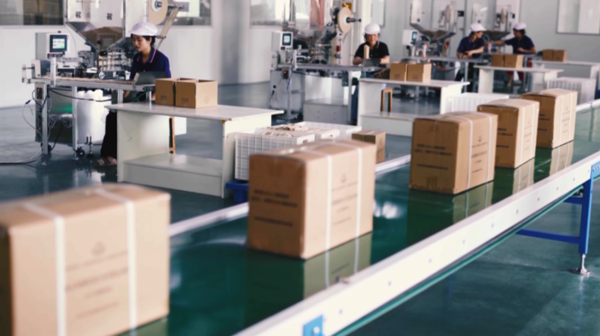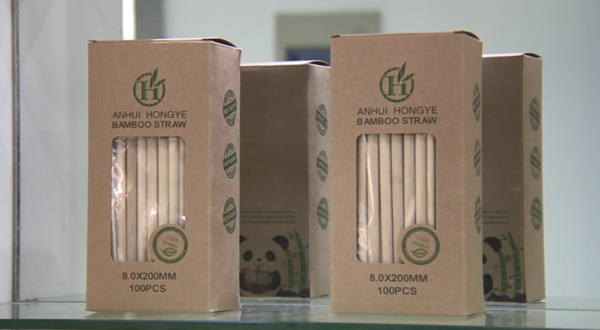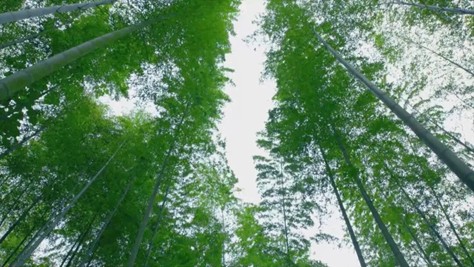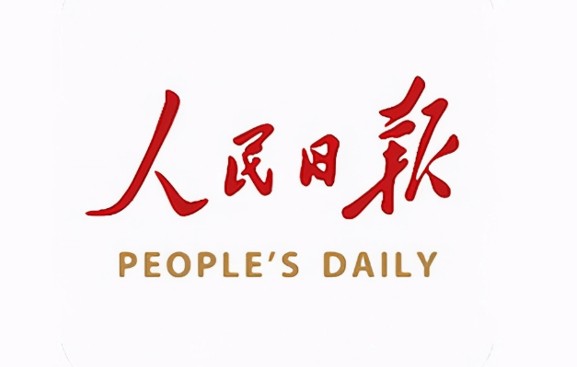An article by Han Lei, People's Daily

In Chizhou, east China's Anhui province, bamboo is emerging as a sustainable alternative in daily life. Products traditionally made from plastic, such as straws, ice cream sticks, disposable chopsticks, and cutlery, are increasingly being replaced by bamboo-based alternatives.
At a manufacturing facility in the Chizhou High-Tech Industrial Development Zone, automated production lines produce five million bamboo straws daily. Each year, two billion bamboo straws are exported to more than 40 countries and regions, displacing approximately 6,000 tons of plastic and reducing carbon emissions by 36,000 tons.
"Bamboo straws do not soften in water or break easily, and they are fully renewable and biodegradable," said Yin Mingliang, the company's general manager. However, he noted that producing even a simple item like a straw posed significant technical challenges, including issues with mold resistance, heat tolerance, and high production costs.
Initial attempts to resolve these problems through partnerships with three PhD research teams were unsuccessful. A breakthrough came in 2017 when a fourth team, after three years of development, enhanced machinery efficiency to produce 2,000 straws per hour and reduced the unit cost to 0.04 yuan ($0.0056), roughly on par with plastic straws.
The company has also developed an integrated pyrolysis system that converts bamboo wastes into high-value products such as activated carbon and hard-carbon anode materials for sodium-ion batteries. The process captures and reuses steam, enhancing energy efficiency.

Chizhou, home to more than 600,000 mu (40,000 hectares) of bamboo forest, has historically underutilized this natural resource. Recently, the city launched a three-year action plan to promote bamboo as a plastic substitute, extend the industrial value chain, and raise incomes for local farmers.
"Who would have thought that bamboo, once overlooked, could now fetch a good price?" said Shu Rengui, a villager from Languan in Hengdu township of Shitai county, Chizhou, as he harvested bamboo in the morning mist. Shu supplies bamboo to a nearby processing facility and earns around 40,000 yuan annually from the business.
At a bamboo-processing base in Meijie township, Guichi district of Chizhou, two processing plants have been built, capable of handling 35,000 tons of bamboo annually. According to Zhang Yu, the site manager, more than 40 villagers are employed at the base, contributing to local income growth.
Chizhou has developed an integrated industry model linking leading enterprises, circular industrial parks, bamboo-splitting plants, and village cooperatives, establishing a full production chain that spans primary, advanced, and deep processing.
According to an official with the local forestry bureau, Chizhou now has 89 bamboo-processing enterprises with an annual capacity of 900,000 tons. In 2024, the city's bamboo industry reached an output value of approximately 3 billion yuan, a year-on-year increase of 26 percent, and provided employment for nearly 40,000 rural households, boosting average household incomes by over 20,000 yuan.

The city is also expanding its global footprint. Through platforms such as the Canton Fair, or the China Import and Export Fair, bamboo products from Chizhou, including skewers, chopsticks, and straws, have entered markets in the EU, India, Japan, South Korea, and other countries and regions.
In December 2023, a Chizhou-based company was invited to speak at a side event organized by the International Bamboo and Rattan Organization during the 28th meeting of the Conference of the Parties (COP) to the United Nations Framework Convention on Climate Change, or COP28, sharing China's experience in plastics substitution.
Bamboo industry development in Chizhou is accelerating. At the first high-quality bamboo industry development conference for Anhui province in 2024, Chizhou High-Tech Industrial Development Zone signed a framework agreement with CRRC, China's leading train maker, to establish a national bamboo circular-industry park headquarters in Chizhou. Plans are also underway to develop more than 50 such parks in bamboo-rich regions across the country.


